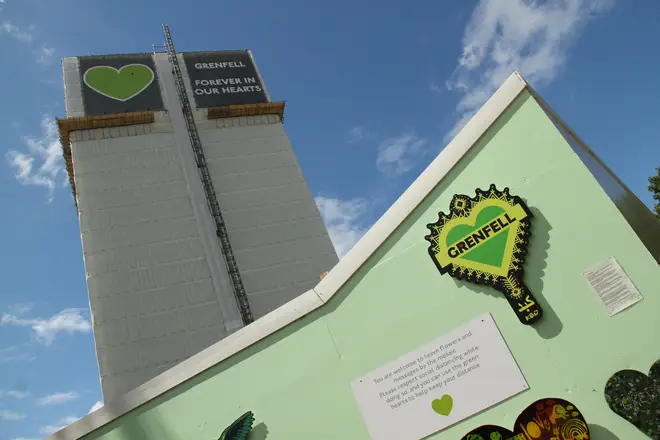
Richard Spurr 1am - 4am
19 October 2020, 13:03 | Updated: 19 October 2020, 13:17

LBC's Correspondent sums up a tense morning of evidence at the Grenfell Tower inquiry.
This morning's evidence was in many ways extraordinary.
And it must be viewed in the context of Thursday's session, during which lawyers were told about a “secret” and “offline” meeting in March 2014 between Kensington and Chelsea's Tenant Management Organisation (the effective Landlords of Grenfell Tower) and the contractor Rydon, hired to carry out the refurbishments.
This meeting wasn't minuted, but we know that the present parties came out of it, having agreed more than £800,000 in savings for the Grenfell project.
This included deciding to cut the cost of windows, and to swap out the safer, more expensive, zinc cladding panels for the cheaper aluminium alternatives which, we now know, became the main cause of the spread of the fire in June 2017.
Following on from that evidence, Peter Maddison, who was Director of Assets and Regeneration for the TMO, at home, pulled out his diaries and notebooks from the time to check if he had made any notes in that meeting.
These books, had never been shown to the Inquiry, nor it seems, to the police.
They were hastily handed over by his solicitors, and Richard Millet QC made an indignant statement to the Inquiry.
NEW: Grenfell Inquiry has just been handed 8 notebooks & 5 diaries from the Tenant Management Organisation's Director of Assets, Peter Maddison. Spanning 2013-17 with much about the Tower's refurb. These haven't been handed to the Inquiry before, nor it seems, to the police. @LBC pic.twitter.com/zHEoHkcCEa
— Rachael Venables (@rachaelvenables) October 19, 2020
Mr Millet went on to say that Mr Maddison would have to give a "clear and convincing" explanation as to why he failed to disclose "material of the utmost relevance" to the inquiry until now - when he gives evidence tomorrow.
Then we heard from Clare Williams, Mr Maddison's former colleague at the TMO, as Project Manager for the Grenfell refurbishment programme.
She was asked if she kept similar notebooks from the time, and admitted "yes," but she'd "binned them" nearly a year after the tragedy.
Chairman Sir Martin Moore-Bick felt compelled to jump in.
THEN Richard Millet QC revealed that yesterday morning they got another late-arriving document, from the TMO's solicitors, on the issue of residents' involvement in Tender scoring. We are "mystified as to how this document was missed by the TMO ." pic.twitter.com/xolmV36134
— Rachael Venables (@rachaelvenables) October 19, 2020
“You binned them even though you knew by that time there was already on foot a public inquiry?”
“I believe I looked at them and they were notes. Everything that was in there, I would have thought is actually documented elsewhere. For example notes of site meeting minutes.”
Adding “I think I just tidied out the desk [...] I would have looked at them and thought nothing here that isn’t informal evidence. And so I got rid of them.”
The Inquiry continues.